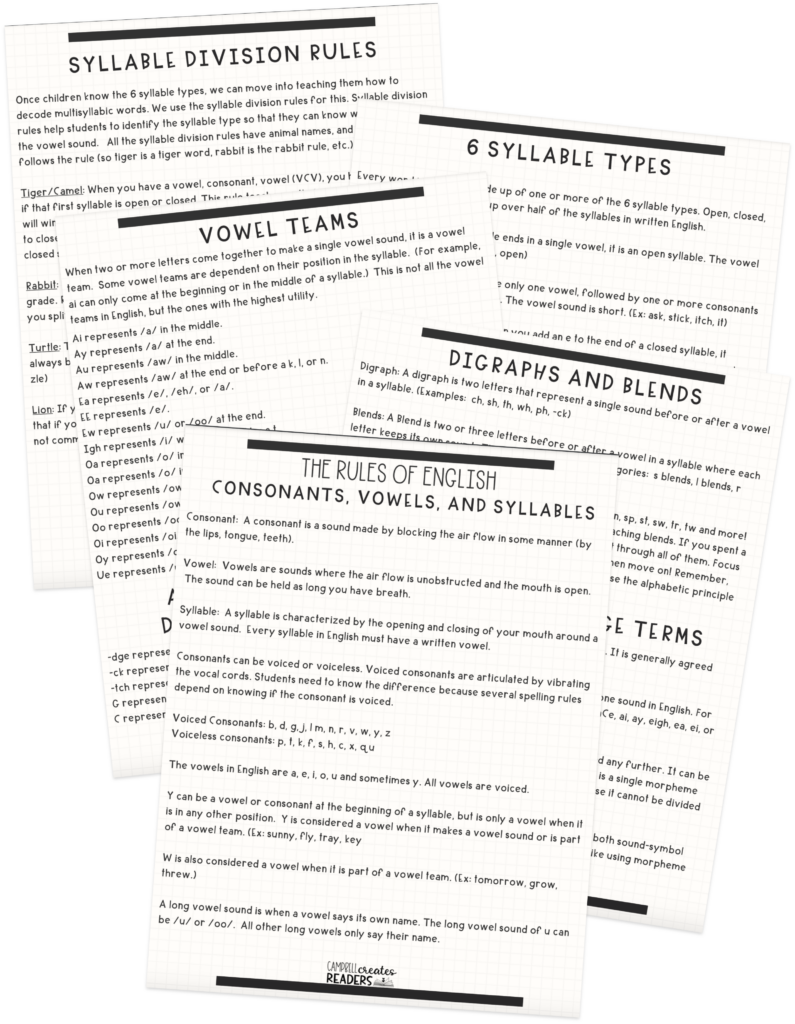
Share This:
Hi, I’m Jonathan, the parent of an elementary-aged child. I’m not a literacy teacher or an expert. I’m a parent who stepped in to help my child when the reading curriculum didn’t fit what they needed to learn. While I expected that I would need to support my children’s literacy education, I didn’t expect to become my child’s primary source for learning how to read, write and spell. It was difficult at first, but it has become a rewarding journey for both of us.
If you’re reading this, then you, like me, have found yourself wondering how you can support your own child. You, like me, probably feel unqualified, and worry about your child’s skills. Are they at the right level for their age? Are they going to fall behind? Will any of their struggles with math hold them back in their academic career? What can I do?
I’ve spent a lot of time learning how to teach my child, and we both have learned a lot. At first, I didn’t get any practical advice. “Just be patient, kids figure it out on their own pace.”, or “Get them reading every day and the rest will come.” It wasn’t until I found teachers who were passionate about sharing how to teach children to read using structured literacy that I found the tools that helped us.

A structured literacy approach will provide you with explicit reading concepts, rather than waiting for magic to happen. Instead of feeling like you don’t know where to start, a structured literacy approach is clear and detailed. It seems like a lot, and while there is a lot to learning literacy, and it requires patience and consistency over years of learning, even your smallest efforts will help your child. You don’t have to know it all, and if you are like me, you can learn just enough to stay one step ahead of your child as they learn. There are an amazing amount of resources out there to help.
Have you ever read a dinosaur book to a child? Were there names that were hard to pronounce? How did you manage it? Dinosaur books provide phonetic spellings of long, technical names.
We can easily read the names of the dinosaurs because they break down the long words spelling out each sound. For example, Brachiosaurus is easier to read when we have a phonetic in the text like “Brack-ee-oh-sawr-us”. This tells us what sounds each of the sections of the word has. We read it like this: “brack”, “ee”, “oh”, “sawr”, “us”, then we join the sounds together: “brack-ee-oh-sawr-us”, becomes “brackee-oh-sawrus”, and then we finally blend all the sounds together as “brackeeohsawrus”. With practice, when we see “brachiosaurus” we decode the sounds based on the hints in the text that told us what the sounds were. Notice, the “ch” has a hard ck sound, “i” has a long e, “au” makes an aw sound and so on.

How can we read these unfamiliar words, and improve with practice? Dinosaur book publishers are providing hints on mapping the sounds to the written letters so we can read and pronounce them differently than we usually do. The writers assume that you already know how to read English, and they provide help for letter sounds we don’t usually use.
Now think about those skills, and what it might be like if you don’t have the ability to crack the code. If your child is trying to read, and they don’t know what sounds the letters make, and how to combine those letter sounds into words, it feels the same to them as it does when we read dinosaur books. Or reading medication bottles, or ingredient lists, or words in a language we don’t understand. When we have hints or rules that are familiar to how we relate to language, it helps make the incomprehensible comprehensible. In other words, with some support, we can crack the language code.
Our children aren’t born with an inherent set of rules to read words in a particular language. Someone, somewhere, has to teach them how to crack the code. If your child is struggling with literacy, it means they either haven’t been taught how to crack the code, or they are having trouble with a particular aspect of it.
In our home, we had a kindergarten aged child who was extremely driven to read. They tried really hard, and we supported them in every way we could. We read to them from birth, we then started underlining words with our finger as we read, and had them identify the difference between words and pictures on a page. We then transitioned to a beginning reader program with leveled reader books. They would memorize “sight words”, and try out readers based on what they had memorized. It wasn’t working, they were getting frustrated, and we felt lost.

After exhausting our resources and feeling overwhelmed by all the information online, we finally talked to a preschool teacher who had practical advice. Instead of shrugging, or reciting unhelpful platitudes, she described teaching literacy from a structured approach. Instead of hoping and waiting for it to just work through exposure, structured literacy was a thorough plan of action. Suddenly this whole new world was revealed to us, and it was just what our child needed. Our family was amazed at the results.
As a fellow parent, I want to reassure you that you can do this too. You can spend valuable one-on-one time, you can practice reading in the car, while playing games, or watching TV. You can incorporate reading activities into your regular life, so you can practice in context. With a bit of effort, you can learn just enough to help your child address their current needs.
I find teaching literacy particularly difficult, because it was something that I just “got” as a child. I found reading, writing and especially spelling easy. That made teaching my own child much more challenging. I had to go back and learn the why behind the concepts that I picked up implicitly.
Cracking the code of written language requires several skills and abilities to work at the same time, each of which need to be learned individually, then combined. It takes time and effort, but thankfully, you aren’t alone. There are a lot of resources out there and generous experts who share their knowledge so we can all learn from them.
After four years in our literacy journey, and here are some things I wish I had known at the beginning:
I’m going to be honest with you, teaching children to read is a lot of work, and it is difficult. It is hard to teach a person who can’t relate to concepts you take for granted and have forgotten learning in the first place. That said, it is completely within your skillset as a parent to help your child learn to read. Even small efforts on your part can make a huge difference to them. It is also incredibly rewarding to find an approach that works, and to see joy on your child’s face as they start to master literacy. There is nothing like it. And you get to learn something new and interesting too!

Jonathan Kohl is a Dad and learning coach to an elementary school aged child. He works in the software industry, and posts about learning experiences on Instagram @coolmathdad
*As an Amazon affiliate, I may earn a small commission for purchases made through my links (at no additional cost to you).
Share This:

Savannah Campbell is a K-5 reading specialist. She has taught her entire 12-year teaching career at the school she went to as a child. She holds two master’s degrees in education from the College of William and Mary. Savannah is both Orton-Gillingham and LETRS trained. Her greatest hope in life is to allow all children to live the life they want by helping them to become literate individuals.

Savannah Campbell is a K-5 reading specialist. She has taught her entire 12-year teaching career at the school she went to as a child. She holds two master’s degrees in education from the College of William and Mary. Savannah is both Orton-Gillingham and LETRS trained. Her greatest hope in life is to allow all children to live the life they want by helping them to become literate individuals.
Feeling overwhelmed with all the terminology out there? Want to know the key terms all teachers need to teach phonics? In this FREE Rules of English cheat sheet, you get a 5 page pdf that takes you through the most important terms for understanding English—you’ll learn about digraphs, blends, syllable types, syllable divisions, and move. Grab today and take the stress out of your phonics prep!
